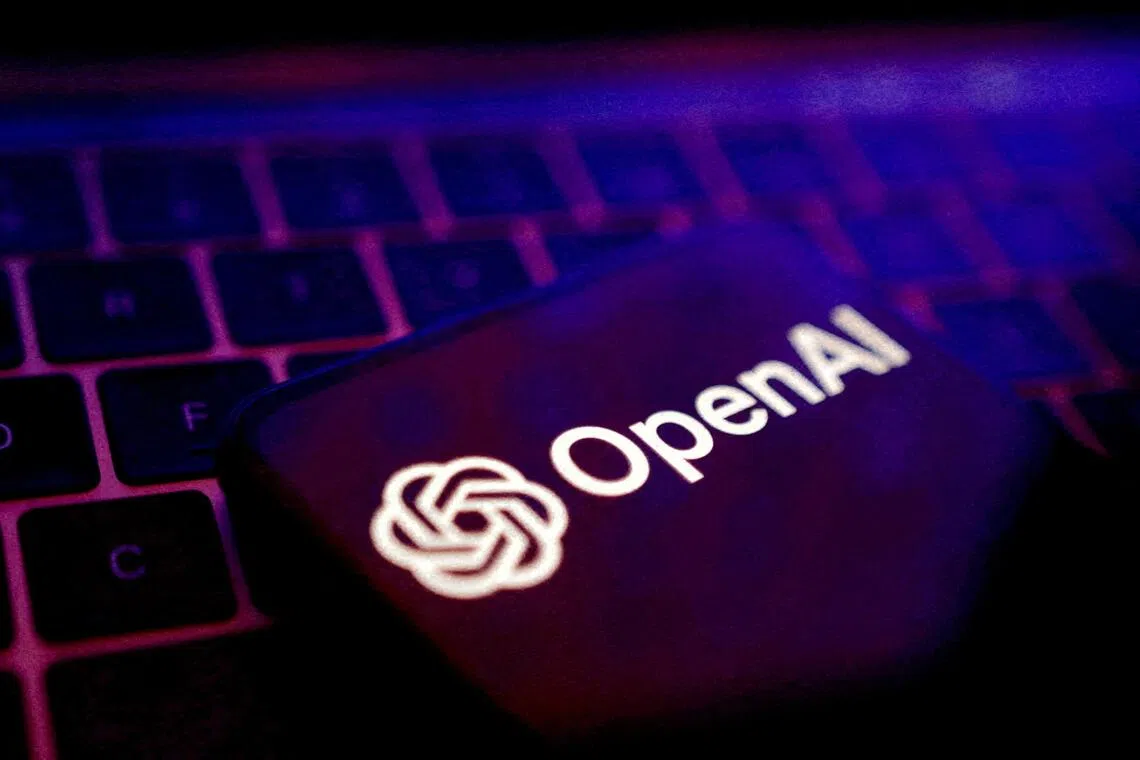ChatGPT owner OpenAI hits $644 billion valuation, making it world’s most valuable start-up
Sign up now: Get ST's newsletters delivered to your inbox

A share sale by current and former employees pushed OpenAI ahead of Elon Musk’s SpaceX.
PHOTO: REUTERS
Follow topic:
San Francisco - OpenAI has completed a deal to help employees sell shares in the company at a US$500 billion (S$644 billion) valuation, propelling the ChatGPT owner past Mr Elon Musk’s SpaceX to become the world’s largest start-up.
Current and former OpenAI employees sold about US$6.6 billion of stock to investors including Thrive Capital, SoftBank Group and Abu Dhabi’s MGX, said a person familiar with the transaction.
This boosted the US company’s price tag well past its previous US$300 billion level during a SoftBank-led financing round earlier in 2025.
The rapid rise underscores the investment frenzy surrounding the leaders of a technology with the potential to transform industries and economies.
Mr Sam Altman’s OpenAI is one of several companies, including Nvidia, now leading a global push to build data centres and develop artificial intelligence (AI) services, an undertaking that is expected to cost trillions of dollars.
Though it has yet to turn a profit, the US start-up is helping to fuel that infrastructure boom by inking mega-sized deals with the likes of Oracle and SK Hynix.
The deal vaults OpenAI past SpaceX’s US$400 billion valuation.
The milestone coincides with a pivotal time for Mr Altman’s company, which is in negotiations with Microsoft to convert into a more traditional for-profit company.
OpenAI was founded in 2015 as a non-profit dedicated to advancing digital intelligence “in the way that is most likely to benefit humanity as a whole”. Planned changes will give the existing OpenAI non-profit entity control over a new public benefit corporation.
Both Mr Altman and Mr Musk, who were OpenAI co-founders, have spoken about the potential existential risk to humans posed by AI. They have since fallen out: Mr Musk has sued to try and stop the overhaul, accusing OpenAI of forsaking promises to him when he helped to create the non-profit. He claims it abandoned its founding purpose when it accepted billions of dollars in backing from Microsoft starting in 2019, the year after he left OpenAI’s board.
When it comes to the business itself, OpenAI faces an increasingly competitive market for AI talent as big tech firms jockey for the resources they need. Meta Platforms, for one, has recruited researchers aggressively from OpenAI and other top labs for its new “superintelligence” team, offering pay packages in the nine-figure range.
A secondary sale could help OpenAI incentivise staff to stay at the company and turn down those lavish compensation offers.
Major US start-ups often negotiate share sales for their employees as a way to reward and retain staff, and also attract external investors. OpenAI is looking to leverage investor demand to provide employees with liquidity that reflects the company’s growth.
The total amount of eligible units transacted in the secondary sale fell short of the US$10 billion-plus worth of stock that the company allowed for sale, the person familiar with the transaction said. That could mean current and former employees are demonstrating confidence in the long-term viability of the business, the person added.
OpenAI faces mounting competitive pressure from rivals such as Google and Anthropic, which are also raising capital at a rapid clip, and China’s DeepSeek, which gained global attention with its own open software.
In response, OpenAI has embarked on a spate of recent technology product launches, including a pair of open and freely available AI models that can mimic the human process of reasoning. It released its most powerful GPT-5 model in August, aimed at shoring up its lead in an increasingly crowded sphere. BLOOMBERG

